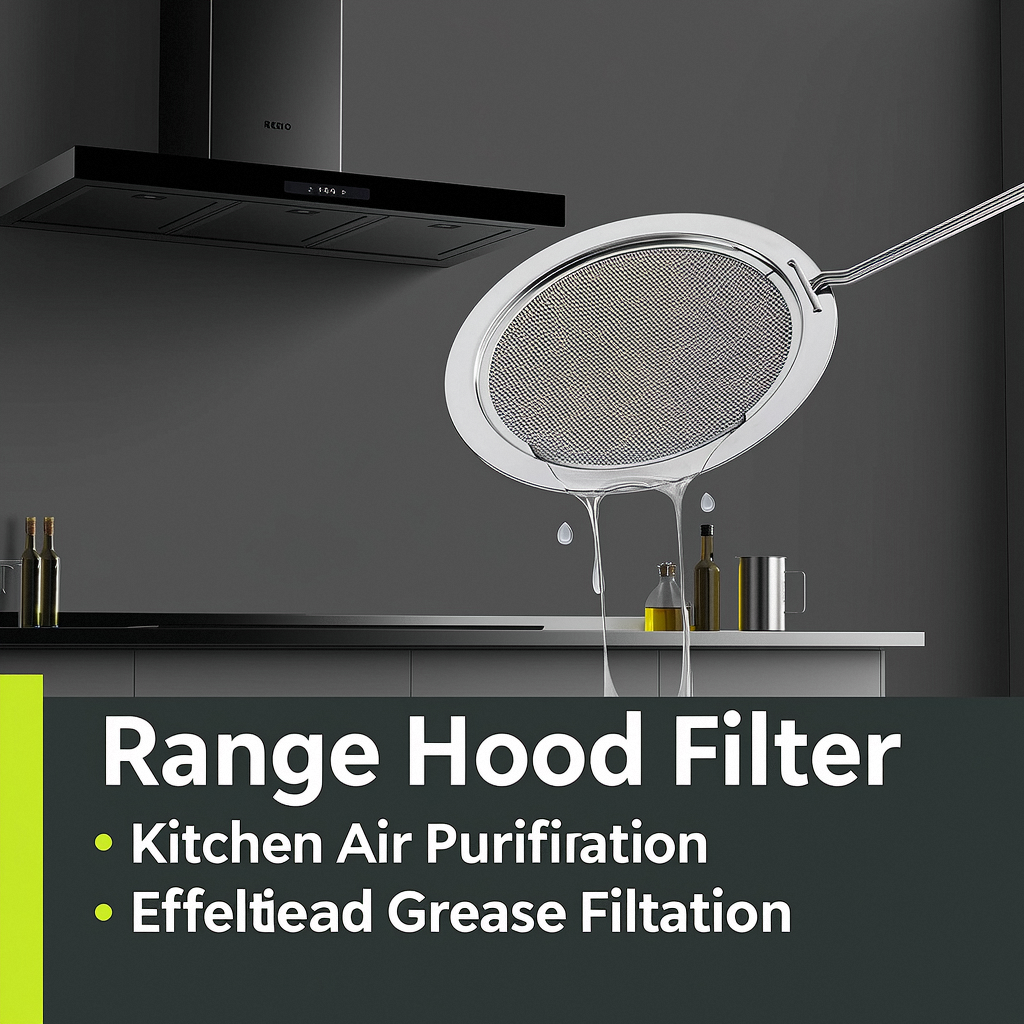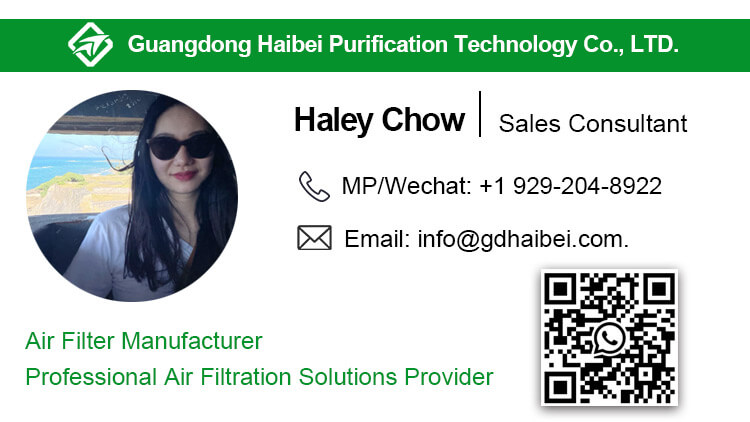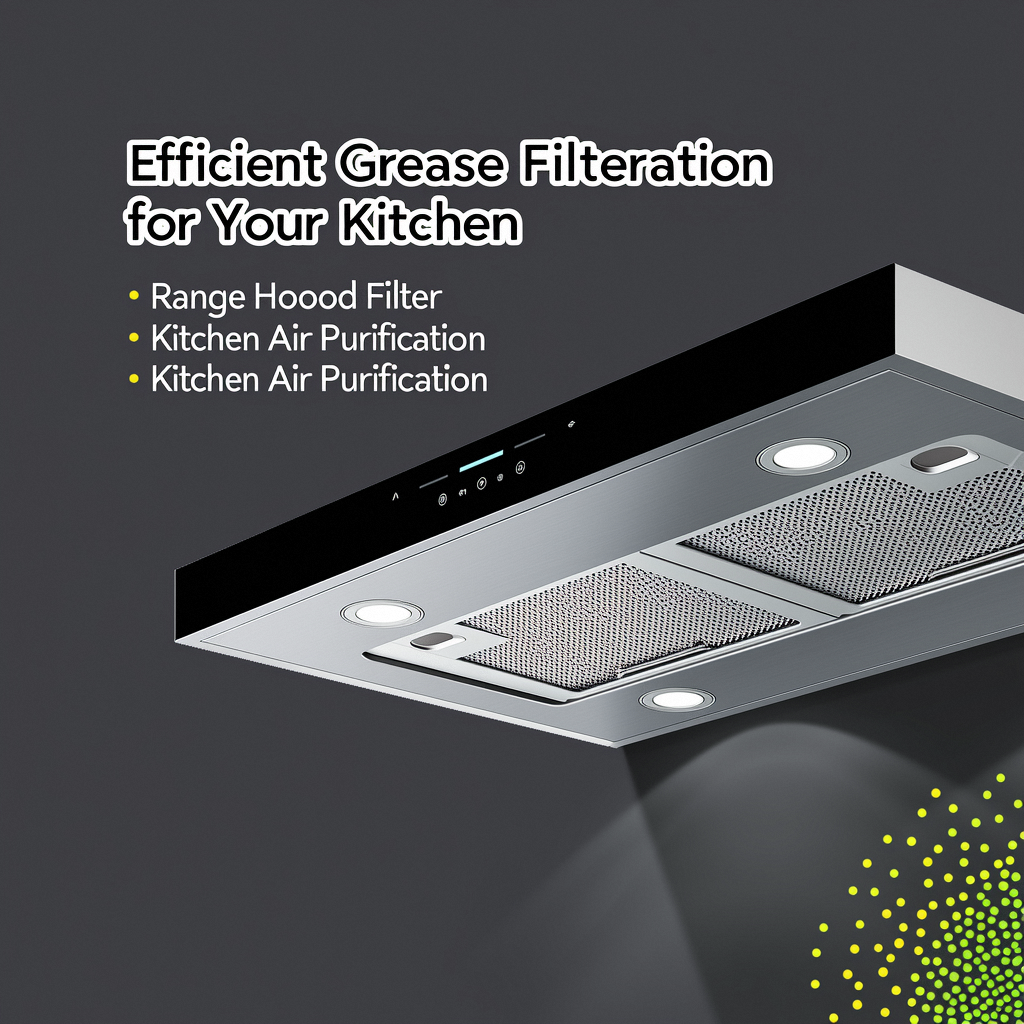The range hood filter is one of the core components of an exhaust hood, designed to capture grease particles, smoke, and other impurities generated during cooking. This helps reduce air pollution and ensures the proper functioning of the equipment. An efficient filter not only extends the service life of the range hood but also provides s with a cleaner and healthier kitchen environment.
1. Range Hood Filter.jpgFeatures
1). High Filtration Efficiency:
It can effectively capture more than 90% of grease particles, significantly reducing the oil content in the air.
2). Easy to Clean:
Most filters are designed to be detachable, allowing s to clean or replace them easily.
3). Durable:
Made from high-quality materials, it offers excellent heat resistance and corrosion resistance.
4). Eco-Friendly and Energy-Saving:
By reducing grease accumulation inside the range hood, it lowers maintenance costs and energy consumption.
2. Range Hood Filter Material and Structure Description
1). Materials
1)Aluminum Alloy:
Commonly used in high-end range hood filters, aluminum alloy is lightweight, corrosion-resistant, and easy to clean.
2)Stainless Steel:
Known for its durability and high-temperature resistance, stainless steel is ideal for long-term use.
3)Activated Carbon:
Mainly used to adsorb odor molecules, it is particularly suitable for open kitchens or scenarios with high air quality requirements.
4)Nylon Fiber:
Cost-effective and often used in low-end products, but requires frequent replacement.
2). Structure
The structure of the range hood filter typically adopts a multi-layer design, including:
1) First Layer: Coarse Filter Mesh
Designed to block larger oil droplets and particles.
2) Second Layer: Fine Mesh
Further captures smaller grease particles to enhance filtration efficiency.
3) Third Layer (Optional): Activated Carbon Layer
Adsorbs odors and purifies the air.
3、Range Hood Filter Application Scenarios
1). Home Kitchens:
In home environments, range hood filters are mainly used to reduce the spread of cooking fumes during daily meal preparation, protecting family health. They are especially suitable for high-fume scenarios like frying, stir-frying, and deep-frying in Chinese cuisine.
2). Commercial Kitchens:
Commercial range hoods are usually equipped with more efficient filters to handle high-intensity, continuous cooking demands while meeting environmental regulations.
3). Open Kitchens:
Open kitchens have higher air quality requirements, so filters with activated carbon layers are often used to adsorb odors and maintain fresh indoor air.
4). Small Restaurants:
Small restaurants can reduce equipment maintenance costs by regularly cleaning and replacing filters, while ensuring a clean and hygienic kitchen environment.

4. Conclusion
As an indispensable part of modern kitchens, range hood filters play an important role in improving air quality, protecting equipment, and enhancing experience. Whether in home or commercial settings, choosing the right filter material and structure can bring better results. In the future, with technological advancements, filters will evolve towards greater efficiency and sustainability.
Explore our full range of air filters and find the perfect solution for your needs. If you need assistance purchasing filters or confirming filter size, please call +1 929-204-8922 (9-5 EST Monday-Friday) or email info@gdhaibei.com.










